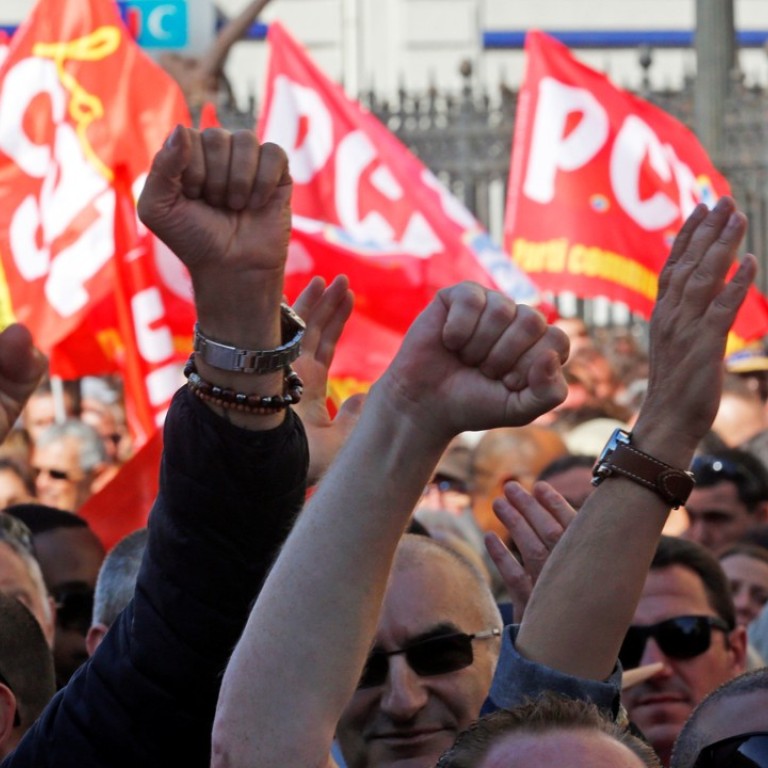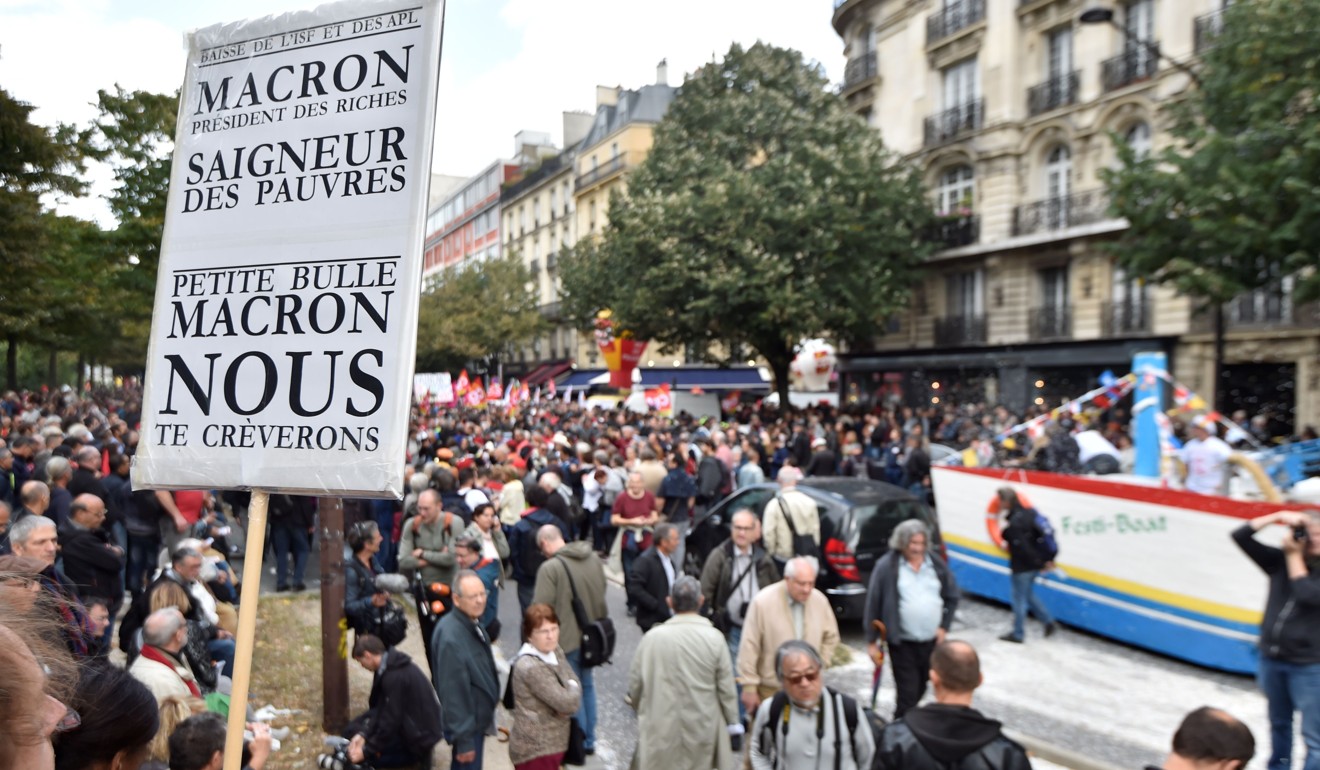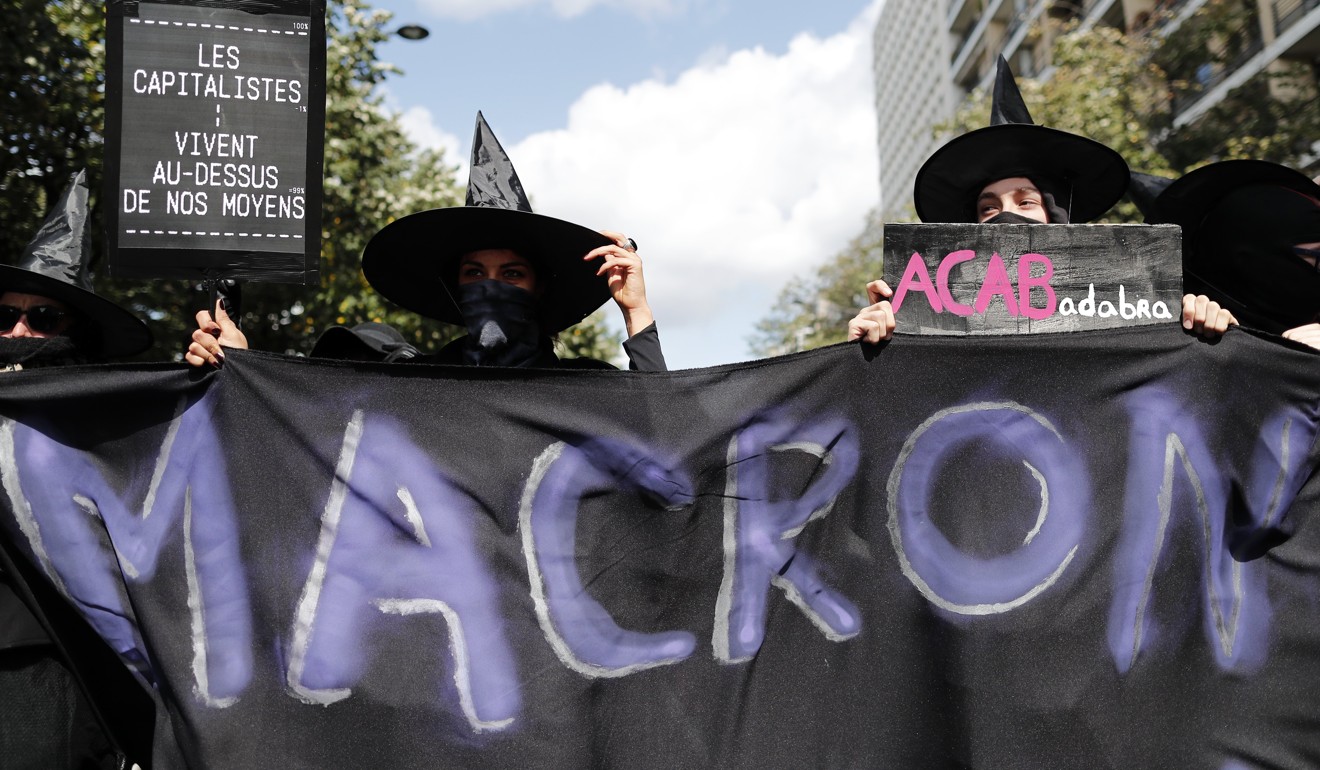
Police deployed as French unions stage countrywide protests against President Macron’s labour reforms
While the leader believes that increasing flexibility will reduce unemployment, opponents fear an erosion of worker protections
French President Emmanuel Macron’s plan to overhaul the country’s complex labour code, fulfilling a central campaign promise, sparked the first strikes and protests Tuesday.
What he hopes will be a signature reform entails a major overhaul of the more than 3,000-page labour code which sets out workers’ rights, with some measures dating back over a century.
Macron, whose Republic on the Move party enjoys a comfortable majority in parliament, intends to fast track the reforms by executive orders which are expected to take effect late this month even before being ratified by parliament in the next few months.

Paris police deployed mobile units around the capital for the protests, while thousands of union activists marched in the Mediterranean city of Marseille, in Le Havre on the English Channel and other cities as part of the nationwide movement.
We need to stop thinking that trade union action only makes sense when we demonstrate
An afternoon march was planned in Paris, where police announced the extra deployments. While union marches are usually peaceful, troublemakers on the margins often clash with police. A broad movement against similar labour reforms last year saw several weeks of scattered violence.
Unions also called for strikes. CGT union representative Denis Vavassori said that some workers at the Eiffel Tower planned a walkout on Tuesday afternoon, but it is unclear whether the monument will be forced to close or will stay open for tourists.
The proposed reforms will give small companies in particular more freedom to negotiate working conditions with their employees, rather than being bound by industry-wide collective agreements negotiated by trade unions.
A cap has also been set on the amount of compensation awarded by industrial courts in cases of unfair dismissal – a core demand of bosses who complain that long and costly court cases discourage them from hiring.
Other measures include streamlining workers’ committees, which are mandatory within large companies, and expanding the use of flexible “project contracts” which allow companies to hire people for a specific job.
In a further concession to companies, multinationals whose French operations are struggling will find it easier to lay off staff, while workers made redundant will receive higher payouts.
Several unions also fear new measures that would give employers greater leeway to launch voluntary redundancy plans.

Philippe Martinez, the head of the Communist-backed CGT union leading Tuesday’s protests, said the reforms give “full powers to employers” and has called for strikes and rallies.
The CGT has called another day of demonstrations on September 21.
But the leaders of more moderate unions, including the CFDT – the biggest private sector union – and the hard left Force Ouvriere have adopted a wait-and-see approach.
“We need to stop thinking that trade union action only makes sense when we demonstrate,” the head of the CFDT, Laurent Berger, told local radio, explaining how he favoured dialogue.

.png?itok=arIb17P0)